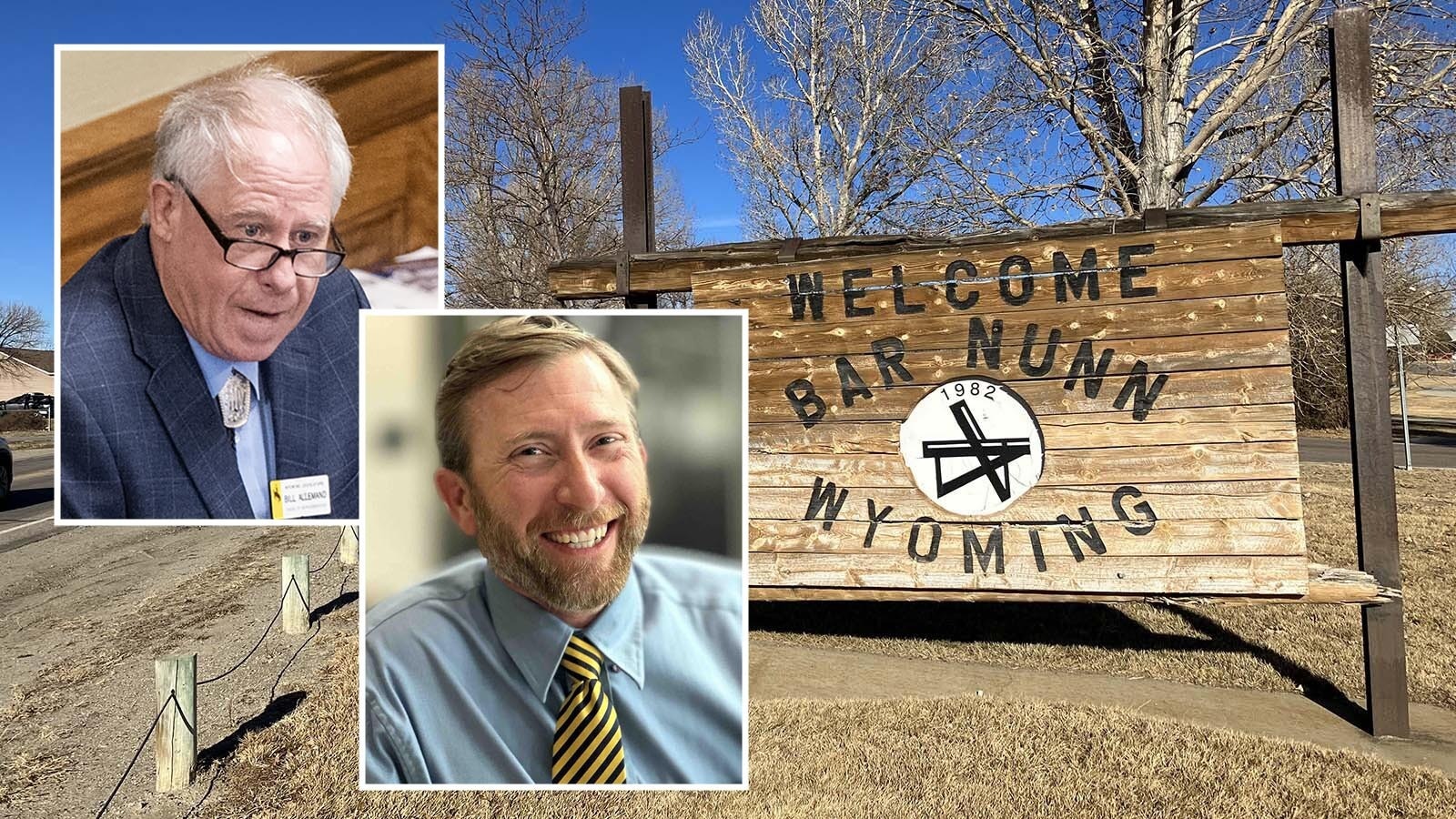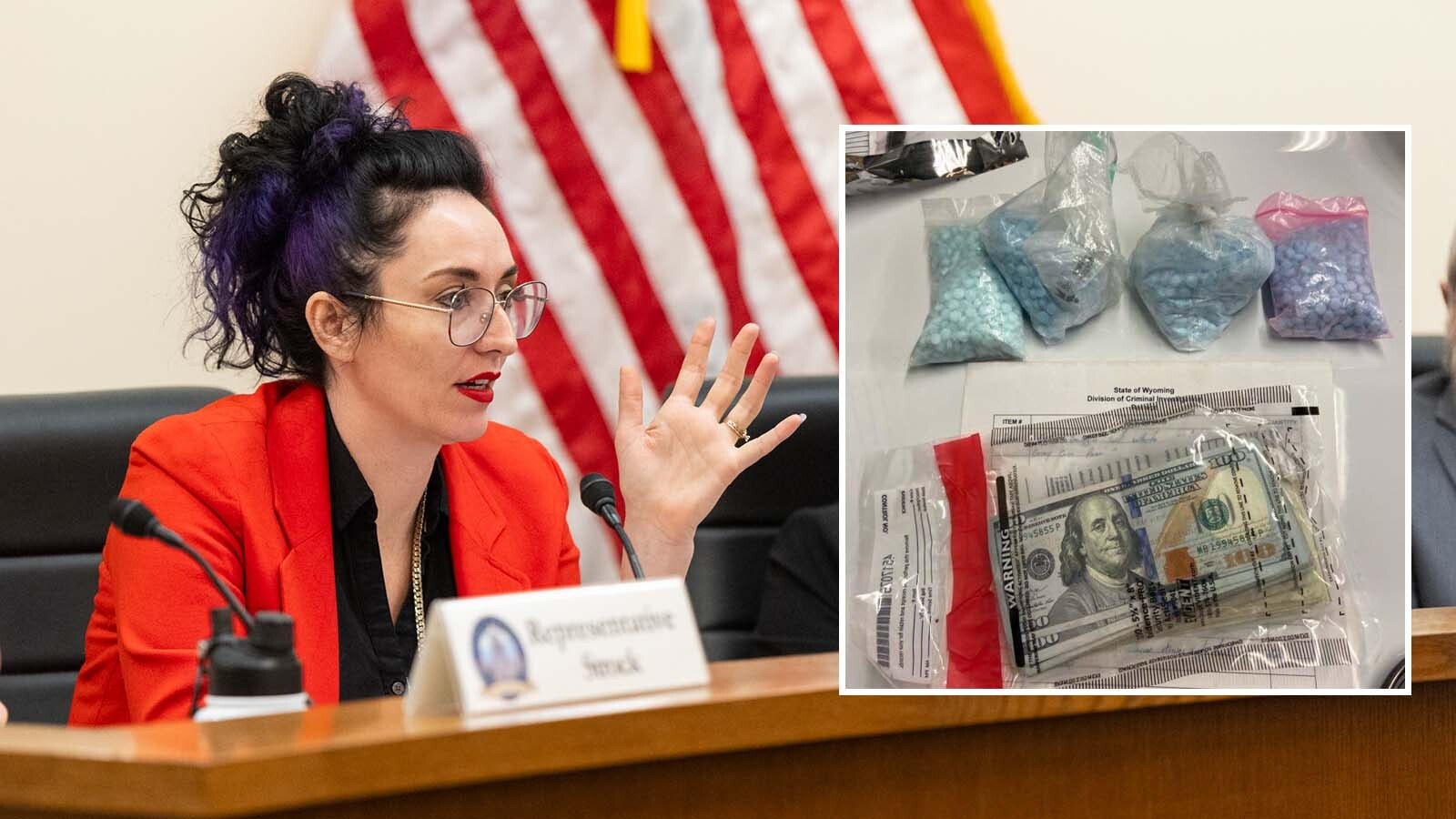A provision of the Trump-endorsed One Big Beautiful Bill Act is prompting two tech-oriented Wyoming legislators to warn of federal government overreach and potentially dire consequences.
The bill, U.S. House Resolution 1 of 2025, would extend the 2017 personal income tax cuts and instill other tax provisions, but could add at least $3 trillion to the nation’s long-term deficit.
It has pitted Libertarian-leaning Republicans like U.S. Sen. Rand Paul and Rep. Thomas Massie, both of Kentucky, against President Donald Trump, who endorses the bill. And on Thursday, it drove an explosive social media showdown between Trump and his former top advisor Elon Musk.
Somewhere in all that, the 10th Amendment to the U.S. Constitution is being trampled, says Wyoming state Rep. Daniel Singh, R-Cheyenne, who co-chairs the legislative Select Committee on Blockchain, Financial Technology, and Digital Innovation Technology.
Generally a President Donald Trump supporter who believes there’s “good work” in the bill, he warned Monday of a provision of the bill forbidding state and local governments from enforcing laws on artificial intelligence systems for 10 years.
That violates the 10th Amendment’s promise of state retention of powers not granted to the federal government, he said.
“The states are being robbed,” Singh told Cowboy State Daily’s Jake Nichols during the Morning Show With Jake. “We need to pay attention to our principles. If we let go of that, I fear the government will be tempted to take other liberties from the states. We need to stand our ground.”
Beyond principle, Singh said he also has serious pragmatic concerns.
He said Wyoming should be able to pass legislation curbing artificial intelligence-generated child sex images or defining AI governmental roles such as determining who qualifies to receive government-funded insurance.
And AI only grows more sophisticated with time, said Singh, adding that people may not comprehend how much harm a system will be able to do in 10 years just as the proposed congressional moratorium is set to expire.
Even now, he said AI systems can question morality, reproduce “anything humanity has done,” lie to people, blackmail people and usurp human systems.
Once It Hurts …
Singh’s co-chair Sen. Chris Rothfuss, D-Laramie, echoed those concerns in a Thursday interview with Cowboy State Daily.
“I think it’s a horrible policy,” said Rothfuss. “I don’t know who lobbied their way to a success story where they got that inserted in the legislation; clearly it was not well-known nor well-understood — as that bill seemed to have passed unread.”
At least one lawmaker who voted in favor of the bill didn’t read it.
Rep. Marjorie Taylor Greene, R-Georgia, announced Tuesday on X (formerly Twitter), that she “did not know” about that section and is “adamantly OPPOSED” to it despite having voted for the bill. That provision needs to be stripped out in the Senate, she added, and she won’t vote for it when it returns to the House for consensus if that provision remains.
Wyoming’s lone U.S. Rep. Harriet Hageman, a Republican, voted in favor of the One Big Beautiful Bill when it cleared the House on May 22. A critical vote in the 215-214 split, she praised the bill’s pivot from green-energy tax incentives to provisions favoring oil, coal and timber industries.
It will help to remove 1.4 million illegal aliens from the Medicaid program, she added at the time.
The bill is more than 1,000 pages long. Rothfuss wondered if Hageman had read it all.
“I don’t know whether our representative, when she cast her vote for that awful bill, had read that provision,” said Rothfuss, who also said state legislatures are better poised to address AI disasters because the local bodies are efficient, whereas Congress is “inept.”
Hageman’s office did not immediately respond to a Thursday-afternoon request for comment.
Rothfuss in years past and through his committee has championed efforts to restrict AI “deepfake” simulations to prevent fraud.
That 2024 bill draft died.
Maybe, said Rothfuss, Wyoming lawmakers will be keener on legislating that issue once it causes real harm.
“What we’ve discovered is that, it needs to affect the people of Wyoming, before we can generate the political will to get it passed,” he said, adding, “We will see scams. We will see fraud.”
Big Beautiful Bill, Is That You?
Wyoming’s Senior Sen. John Barrasso’s office isn’t sure if the AI provision is going to be in the bill once it hits the Senate floor. That provision could fall to a fast-track reconciliation change, a spokesperson added in a Thursday email.
Barrasso met with Trump Wednesday to discuss what Senate Republicans would like to see in the final bill, says the email. And after the meeting, Barrasso said the bill advances a “safe and prosperous America” and “does what the American people want us to do.”
It would prevent a $4 trillion tax increase, which would be the largest in the nation’s history, Barrasso said.
Citing his history as a medical doctor, he said, “We need to strengthen Medicaid for the people that it’s designed to take care of” by cutting Medicaid for illegal immigrants.
“We’re going to unleash American energy,” he said. “All of these things are going to lower costs, increase wages, and put more money into people’s pockets.”
Clair McFarland can be reached at clair@cowboystatedaily.com.





